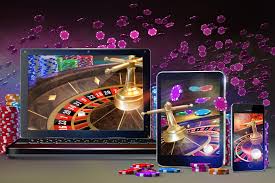
Essential Poker Strategies That Increase Your Success
In the world of poker, success isn’t just about having the best hand; it’s about having the best strategy. Effective poker strategies that increase your chances of winning can make a significant difference between being a casual player and a successful one. Whether you are a beginner trying to learn the ropes or an experienced player looking to refine your skills, understanding and implementing various strategies can enhance your game. To dive deeper into the world of poker strategy, consider exploring resources like Poker Strategies That Increase Your Chances https://bbet-casino.it/, which can provide valuable insights and tips.
1. Understand the Basics of Poker Hand Rankings
Before you can formulate effective strategies, you must have a solid grasp of poker hand rankings. Familiarize yourself with the hierarchy of hands, from high card to royal flush. Knowing what beats what will allow you to make better decisions, from when to bet to when to fold.
2. Position Matters
Your position at the poker table is a critical factor in your strategy. Players in late position have the advantage of observing others’ actions before making their decisions. As such, they can play a wider range of hands. Conversely, players in early position need to be more selective with their hands, as they will act before most of their opponents. Use your position to dictate your aggression and the types of hands you choose to play.
3. Play Tight and Aggressive
One of the best strategies for both beginners and experienced players is to adopt a tight-aggressive style. This means you should play fewer hands but play them aggressively. By being selective about your starting hands and then betting or raising when you do play, you can scare off opponents and build larger pots when you have a strong hand.

4. The Importance of Bankroll Management
Effective bankroll management is crucial for long-term success in poker. Determine how much money you are willing to invest and stick to that limit. A common rule is to never risk more than 5% of your total bankroll on a single game. This way, you can endure the inevitable losses and continue playing without going broke.
5. Read Your Opponents
Poker is as much about psychology as it is about mathematics. Observing your opponents’ behaviors can give you valuable information about their hand strength. Look for betting patterns, timing tells, and physical tells to gain insights into what your opponents might be holding. Adjust your strategy accordingly based on the information you gather.
6. When to Bluff
Bluffing is an essential part of poker, but it should be used sparingly and strategically. A good bluff needs to be credible; for example, bluffing when the board has completed a potential straight or flush is typically more effective. Always consider your opponent’s tendencies; a player who rarely folds is less likely to fall for a bluff.
7. Learn to Fold

One of the hardest lessons for many players to learn is the importance of folding. Holding onto a poor hand can lead to significant losses. If you’re unsure about the strength of your hand or feel that you’re likely beaten, it’s often better to fold and conserve your chips for a better opportunity.
8. Continuously Improve Your Skills
The best players are always honing their skills, studying the game, and reviewing their play. Consider using poker software to analyze your hands or participating in forums to discuss strategies with other players. Reading books and watching videos by experts can also deepen your understanding and introduce new tactics.
9. Manage Your Emotions
Maintaining a calm and focused mindset is essential in poker. Emotional decision-making can lead to mistakes. Learn to recognize when you are becoming frustrated, anxious, or overly excited, and take a step back if necessary. Implement techniques to manage your emotions, such as deep breathing or taking regular breaks from the game.
10. Adapt Your Strategy
Your opponents will change their play style over time, and it’s vital to adapt your strategy to stay ahead. If you find that your opponents are starting to catch on to your tactics, be prepared to shift your approach. Flexibility is key in maintaining a competitive edge.
Conclusion
Mastering poker requires a combination of strategy, psychology, and mathematics. By implementing these strategies, you can significantly improve your game and increase your chances of success at the poker table. Remember, there is no one-size-fits-all approach to poker. Continuous learning and adaptation are crucial. Embrace the journey of improvement, and you’ll likely find yourself better equipped for future games.